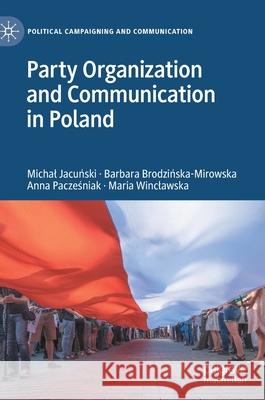Party Organization and Communication in Poland » książka
topmenu
Party Organization and Communication in Poland
ISBN-13: 9783030599928 / Angielski / Twarda / 2021 / 269 str.
Party Organization and Communication in Poland
ISBN-13: 9783030599928 / Angielski / Twarda / 2021 / 269 str.
cena 469,06 zł
(netto: 446,72 VAT: 5%)
Najniższa cena z 30 dni: 462,63 zł
(netto: 446,72 VAT: 5%)
Najniższa cena z 30 dni: 462,63 zł
Termin realizacji zamówienia:
ok. 20 dni roboczych.
ok. 20 dni roboczych.
Darmowa dostawa!
Kategorie BISAC:
Wydawca:
Palgrave MacMillan
Seria wydawnicza:
Język:
Angielski
ISBN-13:
9783030599928
Rok wydania:
2021
Wydanie:
2021
Numer serii:
000768034
Ilość stron:
269
Waga:
0.50 kg
Wymiary:
21.01 x 14.81 x 1.75
Oprawa:
Twarda
Wolumenów:
01
Dodatkowe informacje:
Wydanie ilustrowane











